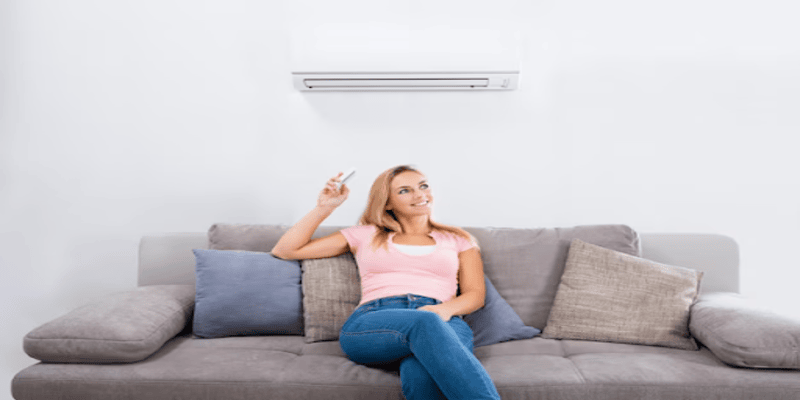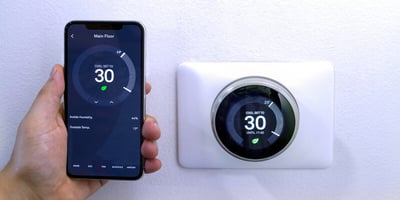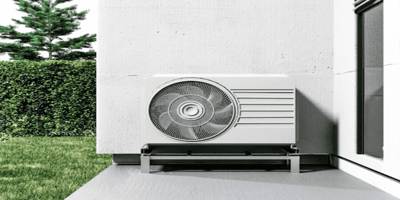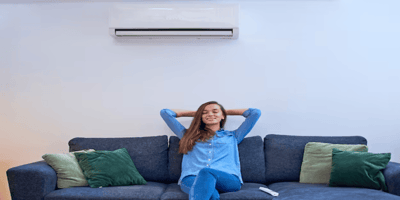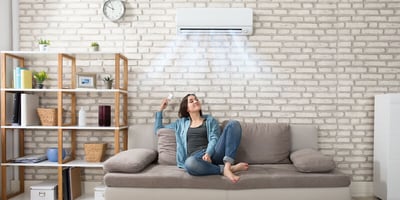How to Prepare Your Air Conditioner For Summer in 2025
Summer 2025 forecasts predict record heat levels across the country, making a properly functioning air conditioning system essential for comfortable living. Preparing your AC for summer ahead of time helps prevent breakdowns during peak heat, extends equipment life, and reduces energy bills. This guide covers everything you need to know to get your cooling system ready for the hot months ahead.
Why Early AC Preparation for Summer Matters
Neglected air conditioners frequently fail during the hottest days when they're working hardest. Data from the National Weather Service indicates summer 2025 temperatures will likely exceed historical averages by 2-3°F in most regions, putting additional strain on cooling equipment.
Early AC preparation for summer offers several benefits:
- Up to 30% reduction in cooling costs through optimized efficiency
- Prevention of costly emergency repairs (averaging $450-$1,000)
- Extended equipment lifespan (typically 10-15 years when properly maintained)
- Improved indoor air quality throughout summer months
The new Department of Energy SEER2 regulations, fully implemented in 2025, now require higher minimum efficiency ratings for residential air conditioning units. While these standards primarily affect new installations, proper maintenance becomes even more critical for older systems to maintain peak efficiency.
Summer Air Conditioning System: Pre-Season Inspection Checklist
 Before summer heat arrives, complete this inspection to identify potential issues:
Before summer heat arrives, complete this inspection to identify potential issues:
- Visual inspection: Examine the outdoor condenser unit for physical damage, debris, or vegetation growth within 2 feet of the unit. Check indoor components for water damage, rust, or unusual wear.
- Operation test: Run your air conditioning system through a complete cooling cycle when temperatures exceed 60°F. Listen for unusual noises (grinding, squealing, or rattling) that signal mechanical problems.
- Airflow check: Place your hand over several vents throughout your home. Airflow should be strong and consistent. Weak airflow indicates potential duct issues or blower problems.
- Drainage verification: Locate your condensate drain line (typically a PVC pipe near the outdoor unit) and confirm water flows freely during operation.
For 2025 model units with built-in diagnostics, access the system report through your smartphone app. These reports identify potential issues before they cause failures, highlighting the technological advancement in newer summer air conditioning systems.
Schedule your inspection approximately 3-4 weeks before sustained temperatures above 80°F typically arrive in your region.
Essential Air Conditioning Tips for Summer Maintenance
Filter Maintenance
Clean or replace air filters every 30-60 days during summer, and every 2-3 weeks during periods of heavy use. The 2025 MERV rating guidelines recommend:
- MERV 8-10 for homes without pets or allergies
- MERV 11-13 for homes with pets or allergy sufferers
Higher MERV ratings offer better filtration but may restrict airflow in older systems. Follow manufacturer recommendations for your specific model.
Condenser Coil Cleaning
The outdoor condenser coil collects dirt, debris, and pollen that restricts heat transfer and forces your AC system to work harder. Clean it by:
- Turning off power to the unit at the disconnect box and circuit breaker
- Removing visible debris from the exterior fins
- Using a specialized coil cleaner and soft brush to remove built-up grime
- Gently rinsing with a garden hose (never use high pressure)
The 2025 phase-down of R-410A refrigerant means checking refrigerant levels should be done by certified professionals with the proper equipment. Improper handling can damage your system and release harmful chemicals into the atmosphere.
Ductwork Inspection and Sealing
Leaky ducts waste up to 30% of cooled air. Use a smoke pencil to check for leaks at visible duct connections. Professional duct sealing uses specialized equipment to locate and seal hidden leaks. New aerosol-based sealants introduced in 2024-2025 offer more thorough coverage than traditional tape or mastic methods.
Optimize Your Summer Air Conditioning System with Smart Technology

The latest smart thermostats provide significant energy savings when programmed properly for summer. Optimal settings include:
- Scheduling higher temperatures (78-80°F) when nobody is home
- Programming lower temperatures (74-76°F) shortly before family members return
- Using nighttime setbacks (76-78°F) during sleeping hours
- Enabling humidity control features where available
Many 2025 models feature predictive cooling that learns your preferences and adjusts automatically. Connect these smart air conditioning systems to your home energy management system to balance cooling needs with solar production or time-of-use utility rates.
Voice commands to consider setting up for popular assistants include:
- "Set away mode during vacation"
- "Optimize for tonight's weather forecast"
- "Balance comfort and efficiency"
Beyond Basics: Advanced Summer Air Conditioner Tips
Zoning Strategies
Implement zoning to cool only occupied areas by:
- Closing vents in unused rooms (although don't close more than 20% of vents to avoid pressure imbalance)
- Installing smart vents that automatically adjust based on occupancy
- Using supplemental window units in frequently used areas instead of cooling the entire home
Supplemental Cooling Approaches
Reduce the load on your air conditioning system with these supplemental cooling methods:
- Ceiling fans can make a room feel 4°F cooler through the wind-chill effect
- Thermal window treatments block up to 60% of solar heat gain
- Whole-house fans used during cooler evenings can pre-cool your home
- Portable evaporative coolers work well in dry climates as spot cooling solutions
Humidity Control
Maintaining indoor humidity between 40-50% improves comfort while reducing the load on your AC system. Consider:
- Standalone dehumidifiers in problem areas like basements
- Smart thermostats with humidity sensing capabilities
- Avoiding indoor activities that generate moisture during peak heat
- Ensuring bathroom and kitchen exhaust fans vent properly outdoors
When to Call the Professionals for Your AC
While many summer air conditioner preparation tasks can be DIY projects, certain situations require professional help:
- Refrigerant issues (bubbling sounds, inconsistent cooling)
- Electrical problems (tripping breakers, burning smells)
- Mechanical failures (grinding noises, fan not operating)
- Frozen evaporator coils
- Units over 10 years old requiring comprehensive service
When scheduling a professional service, ask these questions:
- Do you offer preventative maintenance contracts with priority service during peak season?
- What preventative measures can extend my system's lifespan?
- Is my current system optimal for my home's cooling needs?
- What financing options exist if replacement is needed?
Professional pre-season tune-ups typically cost $80-$200, while emergency repairs during peak summer periods often exceed $500 plus parts. Many HVAC companies offer spring maintenance specials specifically for summer AC preparation.


































